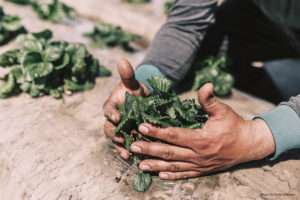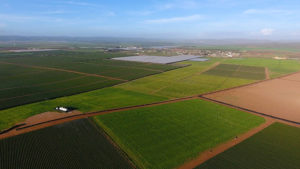The EFI Standards cover Labor, Food Safety and Environmental Standards. Our Environmental Standards specifically emphasize an approach called Integrated Pest Management (IPM). While unfamiliar to many of us, IPM is a decades-old, environmentally sensitive technique for managing pests. By employing practices that minimize the use of chemicals and focus on the use of natural and low-toxicity methods, IPM lowers risks to farmworkers, consumers and the land.

Central to IPM is ecosystem management. This means that all pest management decisions take into account the surrounding physical environment, from nearby crops to the farmworkers harvesting in the field. Regular monitoring is fundamental to IPM in order to correctly identify potentials pests and determine if they are present at levels that pose an economic threat to the farm’s yield or crop quality. When an intervention is needed, IPM emphasizes the use of a combination of different methods – in other words, an “integrated” approach. This means combining a variety of biological, cultural and physical controls (chemical controls are a last resort) based on the pest and surrounding environmental factors.

IPM is the basis for all pest management decisions on #EFIcertified farms. Our Standards require that hired pest control advisors be trained in the use of IPM, that all pesticide use and associated risks to workers be recorded, and that work safety protocols are practiced. By combining long-term prevention of pests and diseases with protocols to lower risks to the workers at the front lines of our food production, IPM is able to solve pest problems while minimizing risks to people and the environment.
“We see EFI as a great opportunity for moving large-scale produce production in a more ecologically-sound direction. We are optimistic that EFI’s embracing of IPM will help revive this decades-old science and make it a more common practice. It’s a great solution for all aspects of the food system.”
– Margaret Reeves, Senior Scientist
(Environmental Health and Workers’ Rights)
Pesticide Action Network North America

